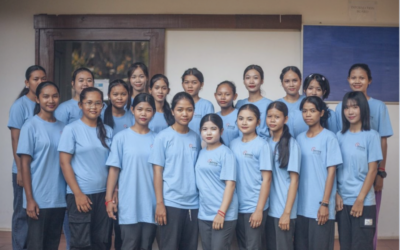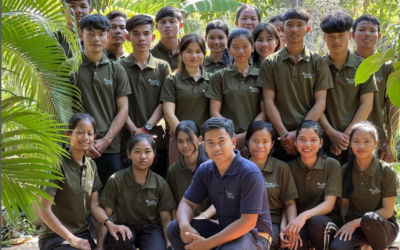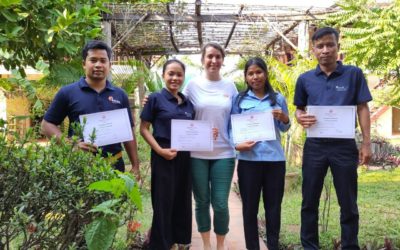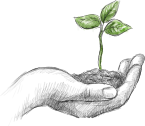
Promotion of sustainable agriculture and awareness of environment respect to our beneficiaries
To deal with the ongoing climate change, the Bayon School is committed to the environment, in particular through the promotion of agroecology. This integrated approach appears as an alternative and sustainable solution to traditional conventional agriculture. The Bayon School supports farmers in this process and trains them in its principles to disseminate this model in the Cambodian agricultural ecosystem.
Conventional, intensive and unbalanced agriculture in Cambodia and still limited environmental awareness
%
Source : FAO, 2018.
%
Source : FAO, 2020.
%
Source : FAO, 2018.
%
Source: Global Forest Watch, 2020
Our vision : Agroecology, a model of sustainable development, socially responsible, respectful of the environment and economically viable
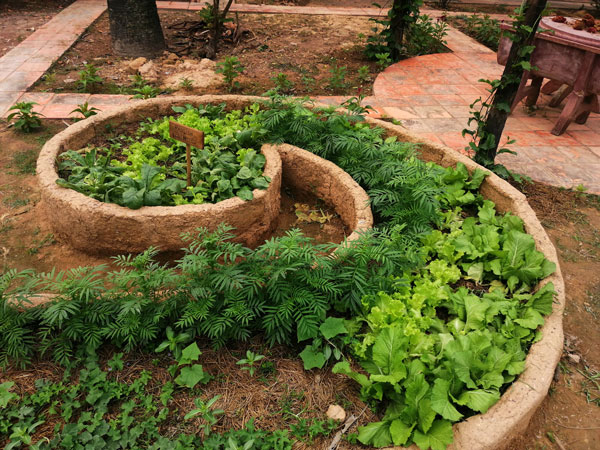
We have been working in the field of agroecology since 2018 through vegetable gardens set up in 10 families of students attending the Ecole du Bayon. These vegetable gardens are cultivated only by women. They produce vegetables without chemicals (no pesticides or inputs) which they then sell in our primary school canteen (152 children fed every day). Thanks to this model combining respect for the environment, development of local populations and a short circuit, everyone can find their way: families generate new income while developing new skills, students eat healthy vegetables in the canteen and our environmental impact is lower.
Since 2018, these families have been supported by our team with a desire for gradual empowerment, in particular through the implementation of training as a development support, the identification of new distribution channels and the future provision of farm seeds for them. make them totally independent.
To demonstrate the benefits of this model in which we believe, at the end of 2019 we created a new ground for learning and experimenting with agroecological practices with the help of two local associations: OrganiKH Farm and Camborea. In 2021, this site will host our new vocational training course in agroecology professions, in partnership with the association Pour un Sourire d´Enfant. With this new school, we want to train technicians in agroecological methods, also capable of entrepreneurship and of carrying the values of sustainable development in their future profession.
Healthy market gardening that feeds the entire Bayon School and provides additional income for families
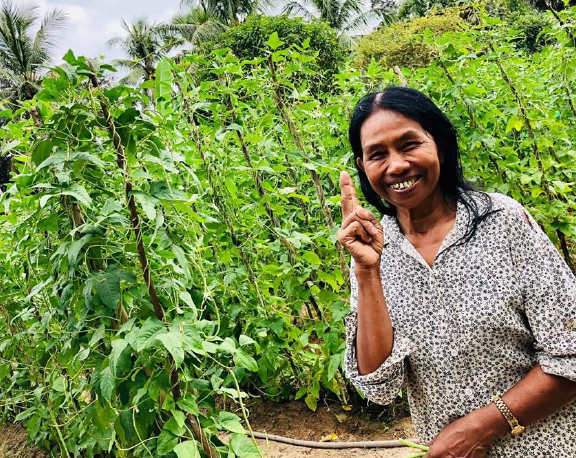
The 10 families involved in the vegetable gardens cultivate more than 20 different varieties of vegetables and produce an average of 30 kg per day, which provides healthy and local food for nearly 250 people at the Bayon School: the 152 students and teachers. in primary school, students and teachers from the pastry / bakery school and NGO employees.
More than 100 species of trees and plants are grouped together on our experimental ground of approximately 1 hectare. Many crop associations are tested and agroforestry experiments are carried out.
Notre desire : To train ambassadors of agroecology and respect for the environment in Cambodia
Our first ambassadors are in fact ambassadors: these are the 10 women that we have been supporting since 2018 and who have become familiar with the practices of agroecology. They can now be the relay of these new techniques to their neighbors and in their villages.
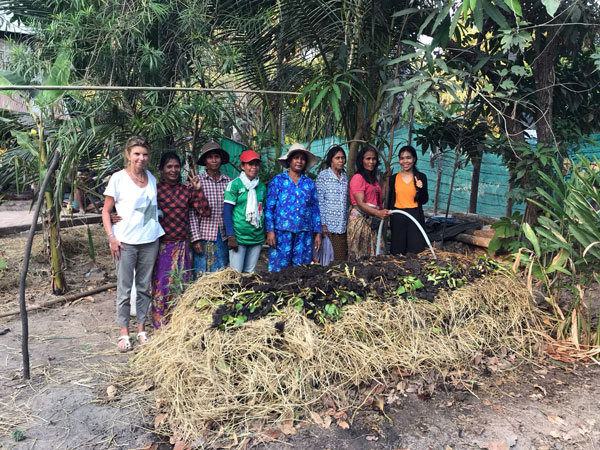
In primary school, students are made aware of the health and environmental benefits of vegetables from organic farming through the canteen. In addition, primary school students and our vocational schools are trained in respect for the environment, via modules integrated into their educational program (plastic pollution, waste sorting, etc.). Sustainable development is a strong value of the Bayon School. Through the students, it is also their families that we touch.
Then, thanks to the professional integration of future students graduating from the school of agroecology, it is in all strata of the Cambodian agricultural ecosystem that we wish to disseminate our model: nurseries, farms, producer cooperatives, distributors and consumers, processing industries, hotels or other NGOs with an agricultural project, etc.
Finally, the identification of new outlets for market gardening in the vegetable gardens of Bayon (organic fruit and vegetable markets and processed products) makes it possible to publicize our project and to raise awareness among local populations. Our experimental site, which will host the vocational training school, is also a showcase for agroecology to raise awareness among the general public.
blog
Follow our news
Say hello to our fantastic 10th graduating class !
At the beginning of February, we had the pleasure of welcoming the Class of 2024, a total of 20...
Discover our young talents from the class of 2024 !
We're delighted to introduce you to the young talents who joined our agroecology program last...
Pedagogical exchanges at Bayon Agroecology School
In March, we had the pleasure to welcome Pauline, Director of the volunteer pole at Planète...

